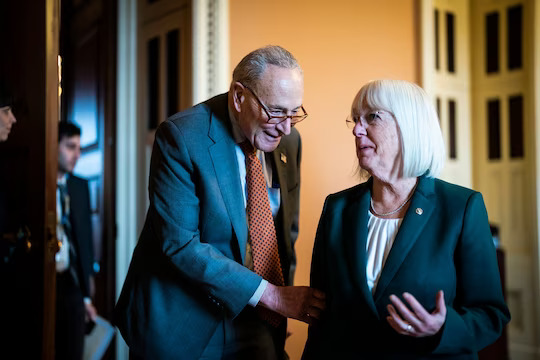On Thursday, Congress approved a measure to fund the federal government into March, marking the third temporary spending bill in four months. Lawmakers faced challenges in reaching a consensus on long-term funding plans, leading to the passage of this stopgap legislation.
The approved bill extends deadlines to March 1 and March 8. Notably, funding for approximately 20 percent of the government, encompassing entities such as the Transportation Department, certain veterans’ assistance programs, and initiatives related to food and drug safety, was set to expire shortly after midnight early Saturday. The remaining 80 percent, which covers critical functions like the Defense and State departments, faced a February 2 expiration if not for the newly granted extension.
The Senate endorsed the legislation with a 77-18 vote on Thursday afternoon. Subsequently, the House also approved it with a vote of 314-108, hours later. However, GOP hard-liners attempted a last-minute push to attach partisan border security measures to the funding package. Despite their efforts, the legislation now heads to President Biden for his signature, averting a partial government shutdown ahead of the deadline.
This stopgap spending bill, referred to as a continuing resolution (CR), provides lawmakers in both chambers the time to draft and vote on a comprehensive set of annual spending or appropriations bills for the remainder of the 2024 fiscal year, concluding on September 30.
While Senate Majority Leader Charles E. Schumer (D-N.Y.) announced the positive news of avoiding a shutdown, tensions between House Speaker Mike Johnson (R-La.) and the House Freedom Caucus, a group of archconservatives, remain. The previously agreed $1.66 trillion appropriations deal needs further negotiation and enactment of finer details before the looming deadlines on March 1 and March 8.
Lawmakers face a tight schedule, with limited session days available between now and the upcoming deadlines. The deal’s passage could intensify existing tensions between Speaker Johnson and the House Freedom Caucus, who seek to include border security policies amid the ongoing faceoff between the White House and Congress on the issue.

